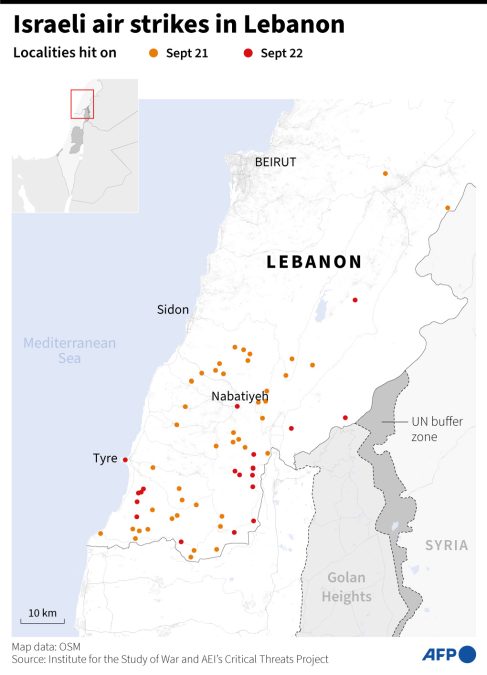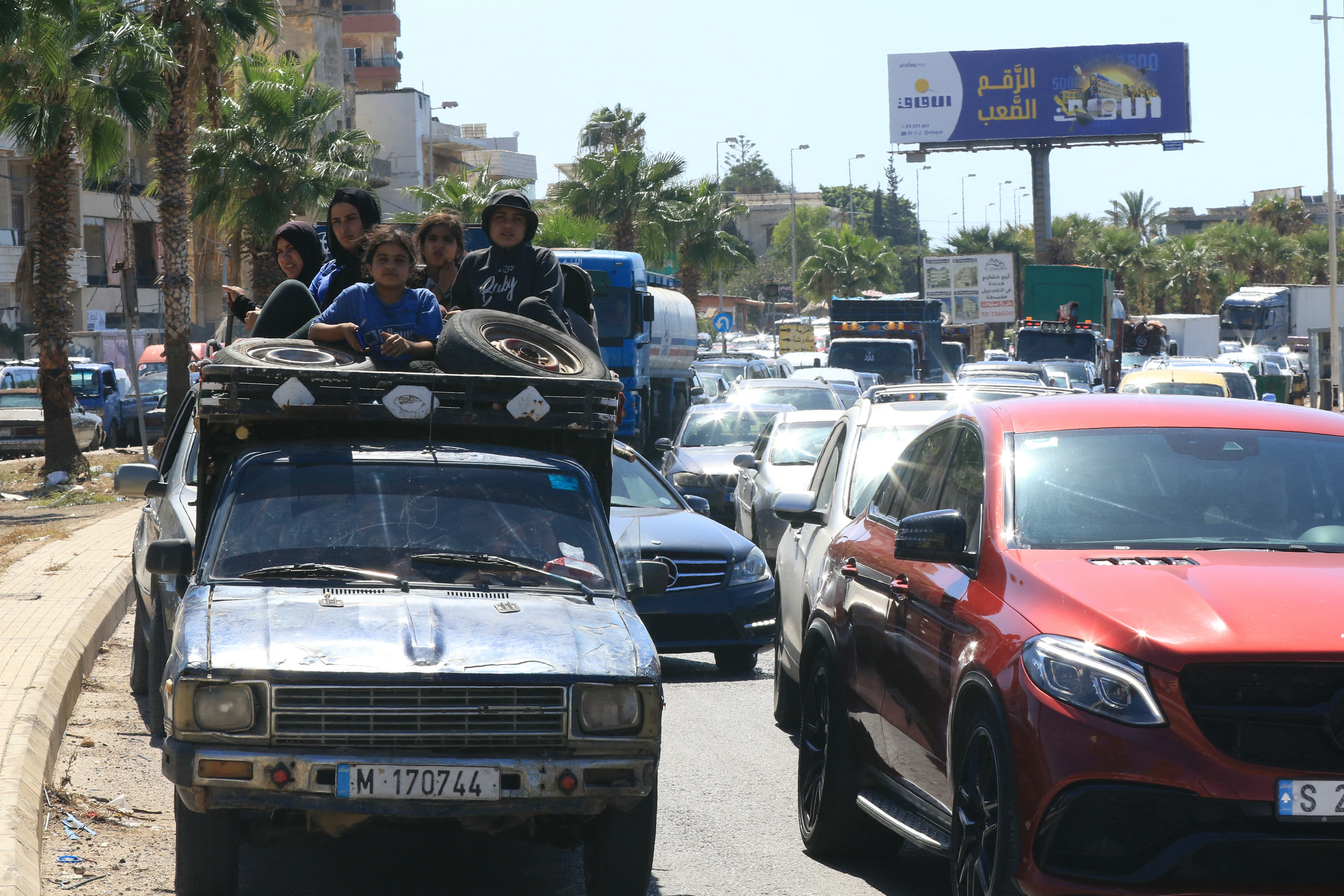Beirut/Tehran/Doha/Geneva — Lebanese Health Minister Firass Abiad said the death toll in Israeli strikes Monday rose to 492, including 35 children, the bloodiest daily toll in nearly a year of cross-border clashes.
The toll stood at “492 dead including 35 children and 58 women — that’s who we know about until now”, Abiad told reporters, adding “thousands of families from the targeted areas have been displaced”.
The dead also included two rescuers, with 16 other emergency workers wounded, he said, adding that “two ambulances, a fire truck, and a medical center were targeted”.
The attacks wounded more than 1,200 people who were treated in more than 27 hospitals, Abiad said.
About 5,000 people had been wounded “in less than a week” of Israeli attacks, he said, after Hezbollah pagers and walkie-talkies exploded and an Israeli strike on Beirut’s southern suburbs.
That number accounts for about half of the overall wounded toll of “10,000 to 11,000”, he said, referring to nearly one year of cross-border clashes between Hezbollah group and Israel after the eruption of the Gaza war.
In Tehran, Iran’s foreign ministry warned Israel on Monday of “dangerous consequences” following deadly strikes on Hezbollah strongholds in Lebanon.
Foreign ministry spokesman Nasser Kanani called the Israeli strikes “insane”, and warned of “the dangerous consequences of the Zionists’ new adventure”.
Israel on Monday launched a wave of air strikes. The attacks mark the largest escalation of violence between Hezbollah and Israel since the war in the Gaza Strip erupted on October 7.
Kanani said Israel’s “crimes” in Palestinian territories and their “expansion to Lebanon are a clear example of a serious threat to regional and international peace”.
He strongly criticized US support for Israel and called upon the United Nations Security Council “to take immediate action to stop these crimes”.
In Doha, the Palestinian group Hamas on Monday condemned Israeli strikes on south Lebanon which saw the deadliest bombardment in nearly a year of cross-border clashes between Hezbollah and Israel.
“We, in the Islamic Resistance Movement Hamas, affirm that this wide-scale barbaric aggression is a war crime,” Hamas said in a statement, adding that the group reaffirmed “our solidarity… with our brothers in Hezbollah and the brotherly Lebanese people”.
In Geneva, the United Nations voiced alarm Monday at the escalating violence between Israel and Hezbollah in Lebanon, warning that actions and rhetoric were catapulting the Mideast conflict “to another level”.
“We are extremely concerned, deeply worried about the escalation in Lebanon,” Ravina Shamdasani, spokeswoman for the UN rights office, told AFP.
“The attacks that we saw on the communication devices, the pagers, followed by rocket attacks and rocket fire being exchanged on both sides … marks a real escalation,” she said.

“What we’ve been warning about all along, the regional spillover of the conflict, it appears that both the actions and the rhetoric of the parties to the conflict are taking the conflict to another level.”
After nearly a year of tit-for-tat cross-border fire between Hezbollah and Israeli forces, the strikes since the weekend are the most intense since the outbreak of war between Israel and Palestinian Hamas militants in the Gaza Strip last October 7.
On Friday the UN’s High Commissioner for Human Rights, Volker Turk, told the Security Council the attack on Hezbollah communications devices violated international law and could constitute a war crime.
Without attributing the attack on the communications devices, Shamdasani stressed that “it is a war crime to commit violence that is intended to spread terror among civilians”.
“The simultaneous targeting of thousands of individuals, whether they are civilians or members of armed groups, without knowledge of where these people will be … this is not acceptable under international law.”
Shamdasani highlighted the calls from across the international community “pleading for a de-escalation”.
“But instead of a de-escalation, what we have seen … is further rhetoric with further plans of an escalation,” she said. “This needs to stop.”








